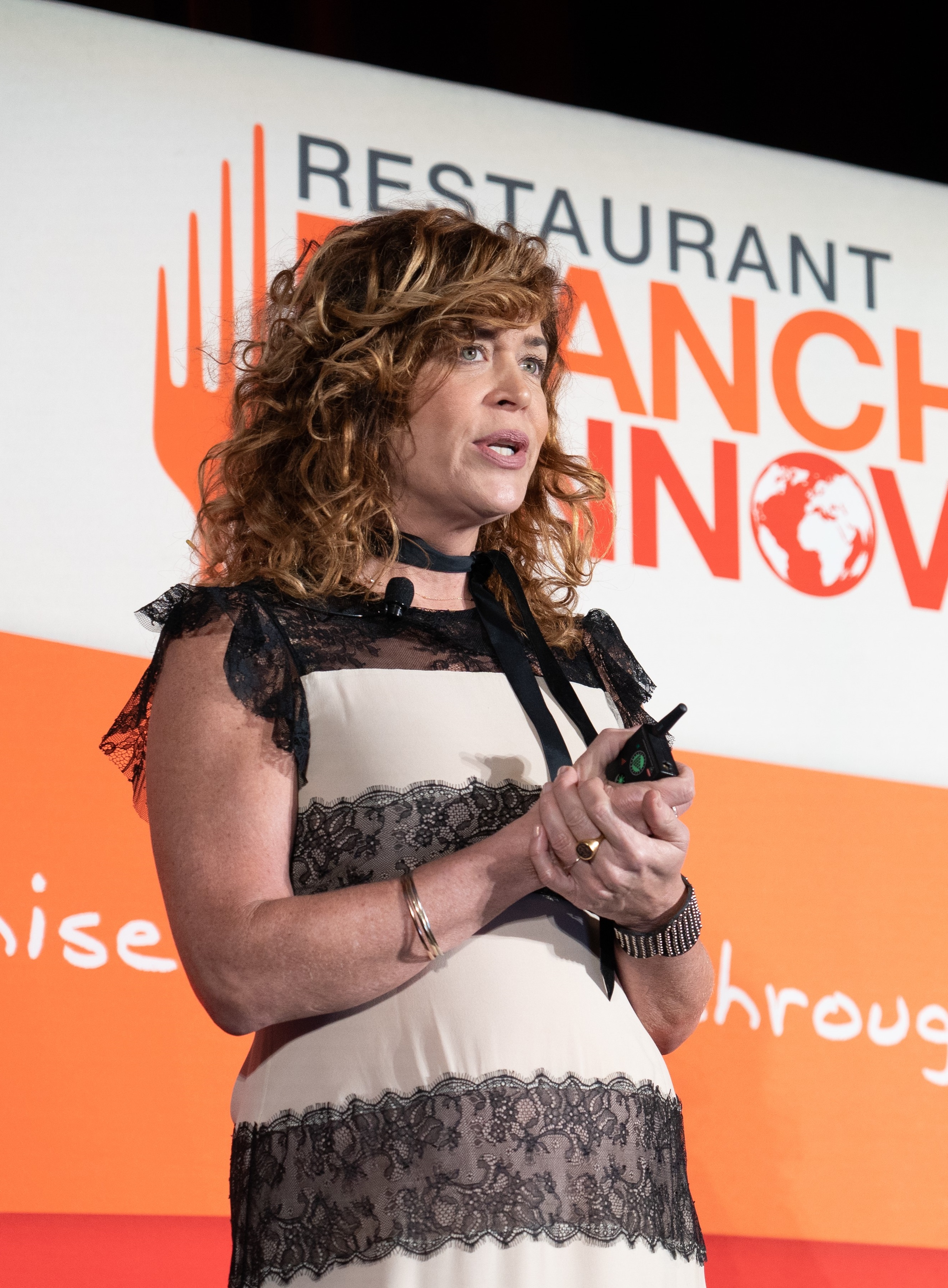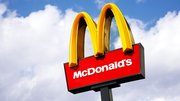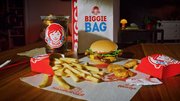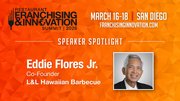Article
Food marketing guru Fogelson tells brands why knowing thyself, now means knowing thy cause
Food marketing sage and former Food Networking and Cooking Channel Senior Vice President of Marketing and Brand Strategy Susie Fogelson has made a career of helping food brands develop their stories under her consultancy. She shared her insights last week during the Restaurant Franchising & Innovation Summit in Louisville.

March 18, 2019 by Elliot Maras — Editor, Kiosk Marketplace & Vending Times
Differentiation. In the crowded QSR category, the importance of a detailed, well-honed approach to this key characteristic is absolutely key to brand success. After all, if brand leadership cannot quickly and clearly define what the concept stands for, how will the dining public?
 At last week's Restaurant Franchising & Innovation Summit in Louisville, food marketing guru and former Food Network and Cooking Channel Senior Vice President of Marketing Susie Fogelson led an hourlong discussion devoted to how limited service brands should best approach this task along with its essential sub-task in today's business environment — knowing the brand's cause.
At last week's Restaurant Franchising & Innovation Summit in Louisville, food marketing guru and former Food Network and Cooking Channel Senior Vice President of Marketing Susie Fogelson led an hourlong discussion devoted to how limited service brands should best approach this task along with its essential sub-task in today's business environment — knowing the brand's cause.
Social causes gain traction
Fogelson spent most of her session giving examples of companies that have embraced positive social change. Why?
"Because of the rise of the conscious consumer," Fogelson told the roomful of restaurant executives at her talk, "The flattening restaurant industry and the rise of the conscious consumer."
Just as an example, Fogelson pointed out that rsearch shows that 64 percent of consumers choose or switch brands based on those businesses' stands on social issues. She pointed to Amazon and Etsy, saying that while neither is specifically focused on food, both are committed to reducing carbon emissions as e-commerce retailers. Chipotle Mexican Grill has also made a mission out of improving the world with a focus on the future of food.
French multinational food products company, Danone, has committed itself to healthy innovation by joining the B Corp movement, she said. On Danone's website it specifies that the action is an outward display that a company does business in a way that meets standards of social and environmental performance, transparency and accountability. Fogelson said food offers unique opportunities to support causes such as transparency in the food supply chain, food safety, menu development, locally sourced ingredients, waste recycling and employee benefits.
Key question to ask — 'Does it pay?'
Having a cause and profiting from it are two different things, Fogelson acknowledged.
"How do we do well by doing good?" she asked.
One major corporation, Unilever, gives some insight on this subject by pointing out that a $1.2 trillion opportunity exists for brands that make their sustainability credentials clear to consumers, Fogelson said. For instance, Subaru has launched a marketing campaign called "share the love," in which all of its 630 dealers actively support charities, she said, generating $118 million in a 10-year period.
Other examples she offered included the snack bar brand, This Bar Saves Lives, which has donated 12 million peanut butter packets to children in developing countries. Casual dining brand, Denny's revamped 70 percent of its menu in the last five years to provide healthier food, Fogelson said. In addition, the company is a national partner of the "No Kid Hungry" campaign, in which the company invites people to donate. The restaurant's initiative donated $5 million to the campaign, she said.
As another example, she said Ben & Jerry's brownie supplier, Greyston Bakery, has supported programs to help those individuals who encounter great difficulties obtaining employment by helping thousands obtain work to earn a total of approximately $65 million in wages which benefited 20,000 families.
Where to begin?
So given all the possibilities, how does a company identify the right cause? Fogelson said the goal is to align the brand with consumer values in some way, but it is not necessary to set massive and all-but-impossible goals to attain. Rather, brand leadership should discuss it and develop ideas that everyone can support.
Achieving agreement among team members can take time, as Fogelson learned during her tenure at Food Network. When some members wanted to focus on addressing hunger, the president didn't go along with it, she said. That, in fact, remained the situation until a new president came along five years later, Fogelson said.
"Find what you truly feel is available to invest in personally, professionally and with your employees," she said.
While some may see taking on a cause as akin to boasting, Fogelson said they should instead think of it as filling a customer need since she said, "Consumers want to know what you stand for."
As a result, she said that brands who fail to undertake such "cause marketing" ultimately pay a price for that.
Feature photo: iStock
Inset photo: Willie Lawless
About Elliot Maras
Elliot Maras is the editor of Kiosk Marketplace and Vending Times. He brings three decades covering unattended retail and commercial foodservice.
 ChatGPT
ChatGPT Grok
Grok Perplexity
Perplexity Claude
Claude








